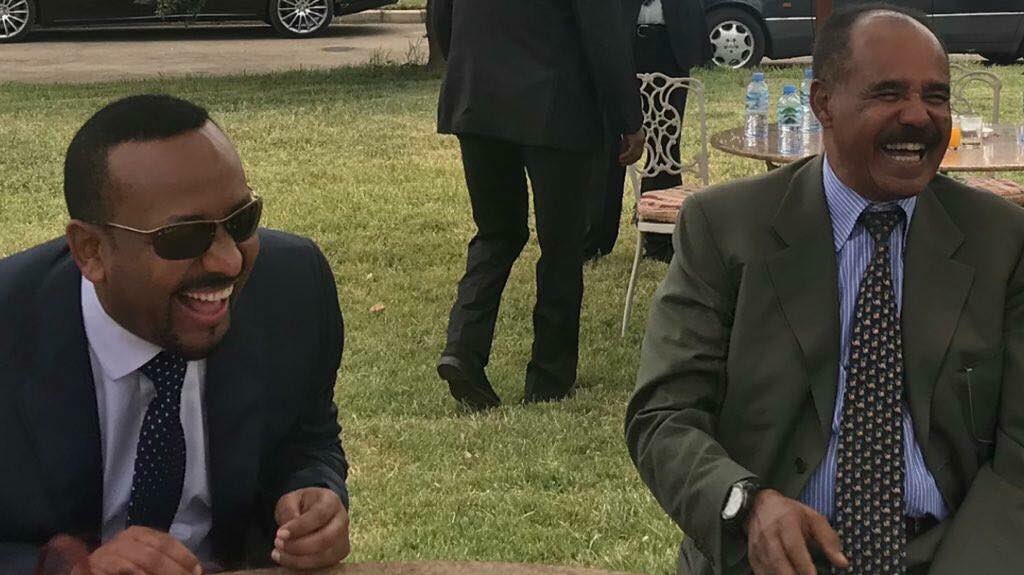Date: Wednesday, 11 July 2018

Abiy Ahmed may have only taken office in April, but the newest Prime Minister of Ethiopia is popular, progressive, and is looking to correct decades of political corruption, violence, and division. With charisma compared to that of Justin Trudeau and Barack Obama, Abiy may very well represent a rejuvenation of democratic unity in Africa. On a continent marked by too many lifetime presidents and a global order threatened by aggressive nationalism, Abiy’s approach to sustainable peacebuilding is not only welcome, but long overdue.
Abiy Ahmed became prime minister in the wake of Ethiopia’s state of emergency in February 2018, when mounting public pressure and protests to release political prisoners and close prison facilities known for practicing torture sparked the resignation of Prime Minister Hailemariam Desalegn. In the last two years alone, hundreds of civilian protesters, journalists, and activists were killed and thousands imprisoned; access to information was limited, and freedom of speech curbed.
Since taking office, Abiy has freed thousands of political prisoners, closed the prison torture facility and fired the head of the prison system. Most notably, Abiy ended the Eritrean-Ethiopian War, which began in 1998 as a land dispute, by publicly agreeing to the terms of the peace treaty created in 2000 and meeting with Eritrean president Isaias Afwerki. This fated meeting has not only reestablished diplomatic relations between the two nations, but also opened the door for economic partnerships. Prime Minister Abiy further called on the United Nations Security Council to end sanctions against Eritrea. The image of two embittered rivals embracing as brothers evokes a deja vu-like image of North Korea’s Kim Jong-Un and South Korea’s Moon Jae-in crossed borders holding hands in April 2018 to discuss the peaceful end of the Korean War, which began in 1953.
Though it seems difficult to differentiate between the flags of either Ethiopia and Eritrea or North and South Korea side-by-side, when we have also seen the disappointing results of North Korea and the US flags in tandem, the distinction is critical. Conflating the legitimacy of positive and peaceful relationship building for regional and national security with showboating and ineffective foreign relations for the purpose of “history-making” would be a mistake.
That being said, the excitement surrounding Abiy’s ascension to power should be met with cautious optimism. Ethnic tensions, need for economic reform, high youth unemployment, and impending elections will require civic engagement and open democratic processes. Abiy is the first leader from the Oromo ethnic group, which constitutes approximately one-third of the population. The Oromo have long felt marginalized from political and economic participation, as the two spheres were historically dominated by the Tigray ethnic minority; the removal of many former Tigray military and political leaders has triggered resentment and violent retaliation.
Additionally, Ethiopia’s economy, though one of the region’s strongest had, until recently, been state controlled and limited in diversity beyond agriculture and construction. Abiy has already taken steps to allow private sector participation in a number of state-owned industries, most famously Ethiopian Airlines. Full private sector takeovers of industries like hospitality and railways may help to not only diversify the economy, but also to provide much needed employment opportunities to the 71% of educated Ethiopians 30 and under.
Transparency in holding free and fair elections in 2020 is imperative – there is no room for a benevolent dictator in the democratic process. Abiy will also need to call on and empower participation of young people, particularly women, who comprise 38.8% of seats in parliament. And though Ethiopia espouses national policies supporting the equality and protection of women, most women are economically marginalized, subject to gender-based violence like female genital mutilation, and many are forced to marry at a young age. The creation of policies to provide comprehensive reproductive health care, increase access to education for women and girls as well as end harmful cultural practices toward women are essential to women’s economic empowerment and participation in society, which is directly linked to the overall economic growth of a community.
2018 was declared by the African Union to be the year of combating corruption and Abiy Ahmed certainly seems to be doing just that. His military background and PhD in Peace and Conflict studies could be an indication that his approach to national and regional unity is based on a theoretical, as well as practical understanding of various approaches to conflict resolution. In an article he wrote on inter-religious fighting, Abiy explored an inter-faith forum used as a mechanism for bringing Christian and Muslim Ethiopians together. Abiy said the purpose of this form was “to address the concerns of each community from the religious conflict point of view. Secondly, it is an actualization of a collective dream, i.e., the dream of creating a peaceful society with the engagement of all actors.” If this sentiment is truly his approach to sustainable peacebuilding, leaders around the world would do well to heed his example.